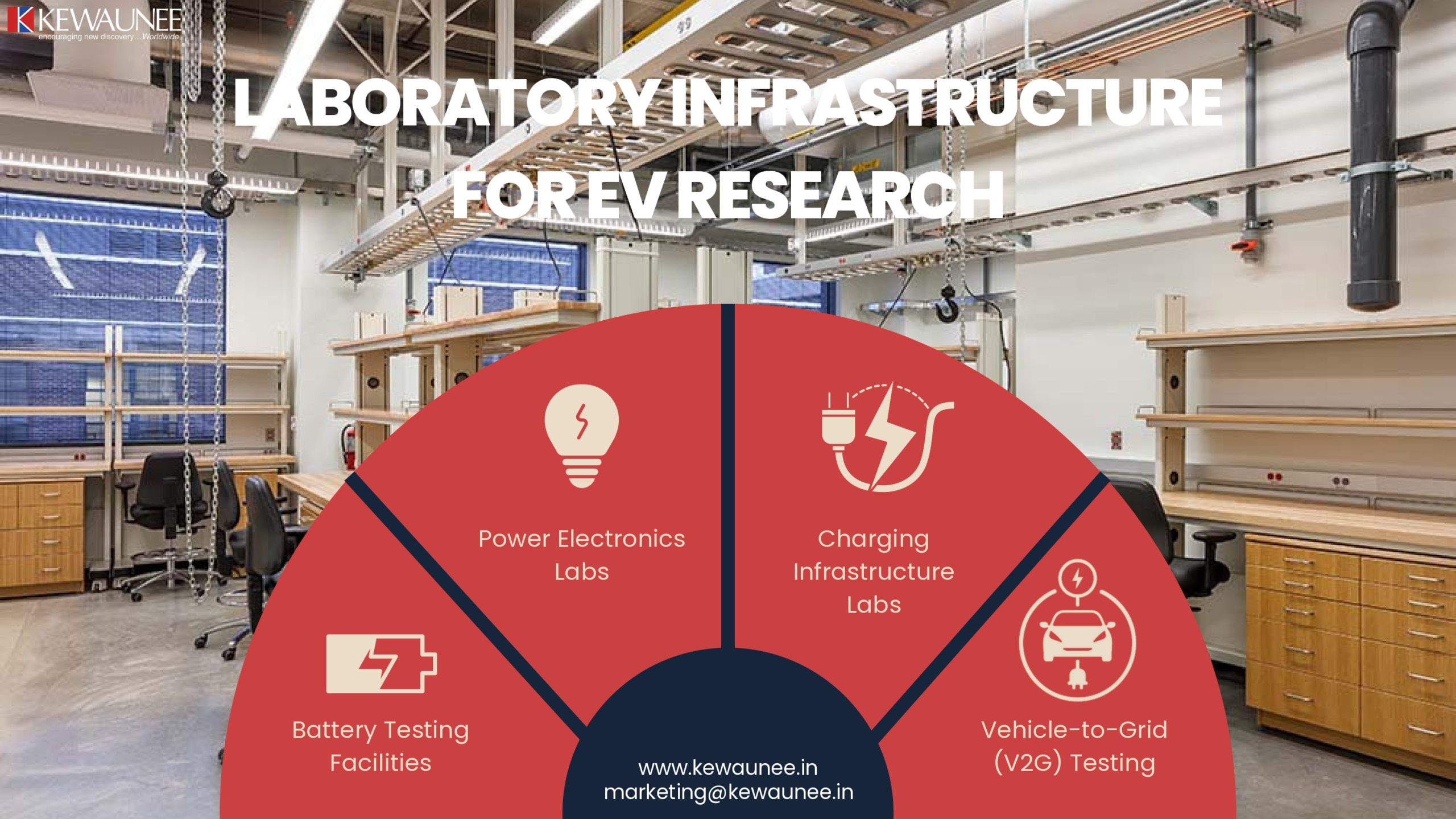Laboratory Infrastructure for EV Research
The electric vehicle (EV) revolution is rapidly reshaping the automotive industry, with a focus on sustainability and clean energy. Behind every successful EV development lies cutting-edge research conducted in specialized laboratories.
In this comprehensive blog, we will delve into the crucial role of laboratory infrastructure in EV research, exploring the facilities, equipment, and technology required to drive innovation in this dynamic field.
1: The EV Research Landscape
1.1. The Rise of Electric Vehicles:
Electric vehicles have emerged as a sustainable alternative to traditional internal combustion engine vehicles. Research in this domain seeks to enhance performance, battery technology, and charging infrastructure.
1.2. The Need for Specialized Laboratories:
EV research demands facilities equipped with advanced instrumentation, precision testing equipment, and controlled environments to develop and refine cutting-edge technology.
2: Specialized Laboratories
2.1. Battery Testing Facilities:
EV batteries are at the core of vehicle performance. Specialized laboratories equipped with battery cyclers, environmental chambers, and thermal management systems allow researchers to test battery performance under various conditions.
2.2. Power Electronics Labs:
Power electronics play a vital role in EVs, controlling the flow of electrical energy. Laboratories dedicated to power electronics research feature high-voltage testing equipment, semiconductor analysis tools, and advanced simulation software.
3: EV Charging Infrastructure Testing
3.1. Charging Infrastructure Labs:
Developing efficient and robust charging stations is essential for the EV ecosystem. Laboratories focused on charging infrastructure testing replicate real-world scenarios, ensuring the reliability and compatibility of charging systems.
3.2. Vehicle-to-Grid (V2G) Testing:
V2G technology enables bidirectional energy flow between EVs and the grid. Specialized labs validate V2G systems, ensuring they meet industry standards and grid stability requirements.
4: Environmental Testing
4.1. Climate Chambers:
EVs operate in diverse climates worldwide. Climate chambers allow researchers to evaluate how extreme temperatures, humidity, and weather conditions affect vehicle performance and battery life.
4.2. Emissions Testing:
As EVs strive for sustainability, laboratories conduct emissions testing to measure their environmental impact and assess improvements in reducing carbon footprints.
5: Simulation and Modelling
5.1. Computational Labs:
Advanced computational laboratories use modeling and simulation tools to optimize EV components, reducing development time and costs while enhancing performance.
5.2. Virtual Prototyping:
Virtual prototyping allows researchers to simulate EV components’ behavior and performance under various conditions, leading to more efficient design iterations.
6: Collaboration and Innovation Hubs
6.1. Research Collaborations:
Collaborative research centers bring together experts from academia, industry, and government to drive innovation in EV technology, sharing resources and knowledge.
6.2. Innovation Incubators:
Incubators foster startups and entrepreneurs focused on EV technology, providing access to laboratory infrastructure and mentorship to accelerate innovation.
Summary
In summary, laboratory infrastructure plays a pivotal role in advancing electric vehicle research. Specialized facilities, equipment, and technology provide the foundation for developing cutting-edge EV components, optimizing performance, and ensuring sustainability.
As the EV industry continues to evolve, investment in state-of-the-art laboratory infrastructure is essential to drive innovation, reduce environmental impact, and accelerate the transition to clean and sustainable transportation. The laboratories dedicated to EV research are at the forefront of a transformative revolution that will shape the future of mobility.
Comments are closed.











